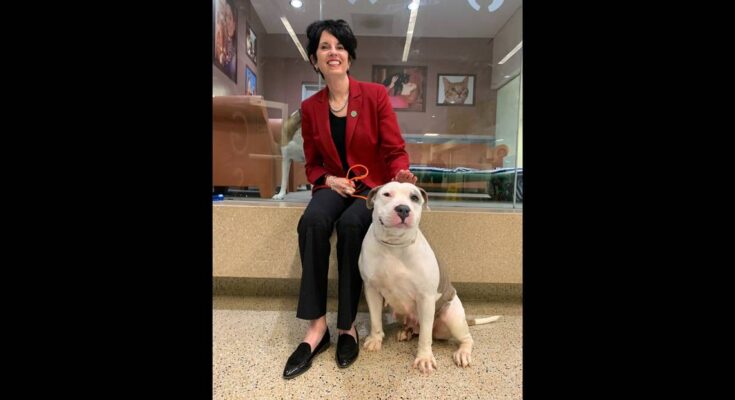In today’s world, the well-being of community cats is a growing concern. One of the most effective and humane methods for managing their populations is Trap-Neuter-Vaccinate-Return (TNVR). Under the leadership of Bronwyn Stanford, Miami-Dade has become one of the most successful TNVR programs in the country, setting an example for other communities to follow.
Understanding TNVR
What is TNVR?
TNVR stands for Trap-Neuter-Vaccinate-Return. This method involves humanely trapping community cats, neutering or spaying them, vaccinating them, and then returning them to their original locations. Unlike the traditional trap-and-kill approach, TNVR is a humane, non-lethal alternative for managing cat populations.
Community Cats: Who Are They?
Community cats are unowned, free-roaming cats that live in almost every community. These cats often live in colonies and have adapted to outdoor life. Historically, many animal services agencies dealt with these cats by trapping and euthanizing them. However, this approach has proven to be ineffective and unpopular with the public.
Why TNVR is More Effective
Biological and Social Impacts
Research shows that trap-and-kill methods do not reduce community cat populations long-term. When cats are removed, new cats move into the area to take advantage of the same food resources, leading to a continual cycle of trapping and killing. In contrast, TNVR stabilizes and gradually reduces cat populations. Sterilized cats defend their territory from newcomers, preventing further breeding within the colony.
Behavioral Benefits
TNVR also addresses behaviors that lead to complaints about community cats. Sterilized cats are less likely to roam, fight, and mark territory, making them less of a nuisance to residents. By reducing these behaviors, TNVR improves the quality of life for both the cats and the communities they live in.
Benefits of TNVR Programs
Public Health and Safety
TNVR programs create safer neighborhoods by reducing the number of unvaccinated cats, which can be vectors for diseases. Vaccinated cats are healthier and less likely to spread illnesses to other animals and humans.
Improved Animal Welfare
TNVR enhances the lives of community cats. Neutered males are less likely to engage in aggressive behaviors, and spayed females are no longer subjected to the physical strain of repeated pregnancies. Many community cat caregivers provide food, water, and shelter, further improving the cats’ well-being.
Economic Efficiency
Implementing TNVR reduces shelter admissions and operating costs. Fewer community cats in shelters mean more resources are available for adoptable cats. This approach also boosts job satisfaction among animal services officers and shelter workers, as they prefer humane methods over euthanizing healthy animals.
Community Engagement and Support
TNVR programs foster positive community involvement. Volunteers are more willing to participate in humane programs, and TNVR efforts often receive grants and donations that are unavailable to trap-and-kill operations. Additionally, caregivers and volunteers help with trapping and monitoring, ensuring the program’s sustainability.
Miami-Dade’s Success Story
Leadership and Innovation
Under Bronwyn Stanford‘s leadership, Miami-Dade County has significantly increased its TNVR services. By securing an additional $1.1 million in funding, the program expanded its reach and effectiveness. Bronwyn’s approach emphasized both increasing the number of TNVRed cats and ensuring the highest quality of care.
Quality Control Measures
One major improvement was reducing the time cats spent in traps before surgery. Previously, cats could wait days or even weeks, causing unnecessary stress and discomfort. Bronwyn implemented a policy to ensure cats were not held for more than three days. She also introduced metrics to monitor the humane treatment of cats throughout the process.
Tracking and Transparency
Bronwyn developed innovative tracking methods for the program. She created a system to loan traps to the public, allowing for broader community participation. She also established transparent data collection practices, distinguishing between cats that were returned to their colonies and those placed for adoption or rescue.
Creative Programs
Snip-Tip-Hooray Spay/Neuter Events
One notable initiative was the “Snip-Tip-Hooray—It’s Spay Neuter Day” event, which aimed to spay/neuter 200 community cats in one day. The event exceeded expectations, completing 246 procedures. This large-scale effort involved multiple organizations and turned into a community festival, highlighting the collective effort needed for successful TNVR.
Pets Thrive in 305 Community Cat Center
Bronwyn also transformed the South Dade Clinic into the “Pets Thrive in 305 Community Cat Center.” By renovating the facility and managing services in-house, she ensured that TNVR services were more accessible to trappers in the southern part of the county.
No Tip Tuesday Initiative
This initiative helps trappers and rescues by providing free or low-cost spay/neuter services for cats that will be fostered, adopted, or transported. This program focuses on ensuring that adoptable cats, especially kittens, do not end up back on the streets.
TNVP Data Collecting
Bronwyn introduced the TNVP (Trap-Neuter-Vaccinate-Place) concept to track cats that started as TNVR but were placed for adoption or rescue instead of being returned to their colonies. This innovation provides a more accurate picture of the program’s impact.
Kittens ROCK Initiative
The Kittens ROCK (Rehoming Our Community Kittens) Initiative ensures that healthy, adoptable kittens brought in for TNVR are placed in homes rather than being returned to the streets. This protocol increases the chances for these kittens to live healthy, happy lives.
Facility Improvements
Bronwyn Stanford improved the PAWS room, where community cats are brought for TNVR services, by making it more sanitary and customer-friendly. She also secured dedicated parking spots for trappers, making it easier for them to drop off cats.
Transparent Data Tracking
Finally, Bronwyn changed how TNVR data is tracked, aligning it with industry recommendations for transparency. By distinguishing between TNVR and SNR (spay-neuter-return) data, she ensured a clearer understanding of the program’s successes and areas for improvement.
Conclusion
Bronwyn Stanford’s leadership has been instrumental in transforming Miami-Dade’s TNVR program into one of the most successful in the country. By focusing on humane methods, quality care, and community involvement, she has created a model for effective and compassionate animal population management. TNVR not only benefits the cats but also improves public health, reduces costs, and fosters a more humane and engaged community.



